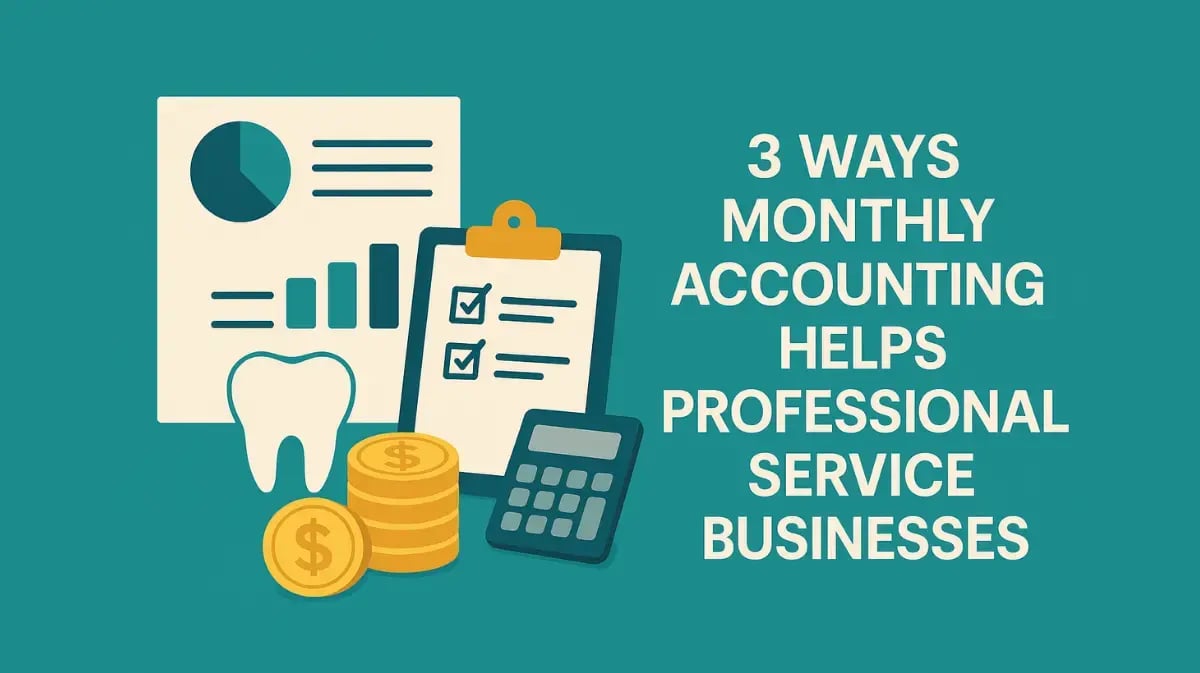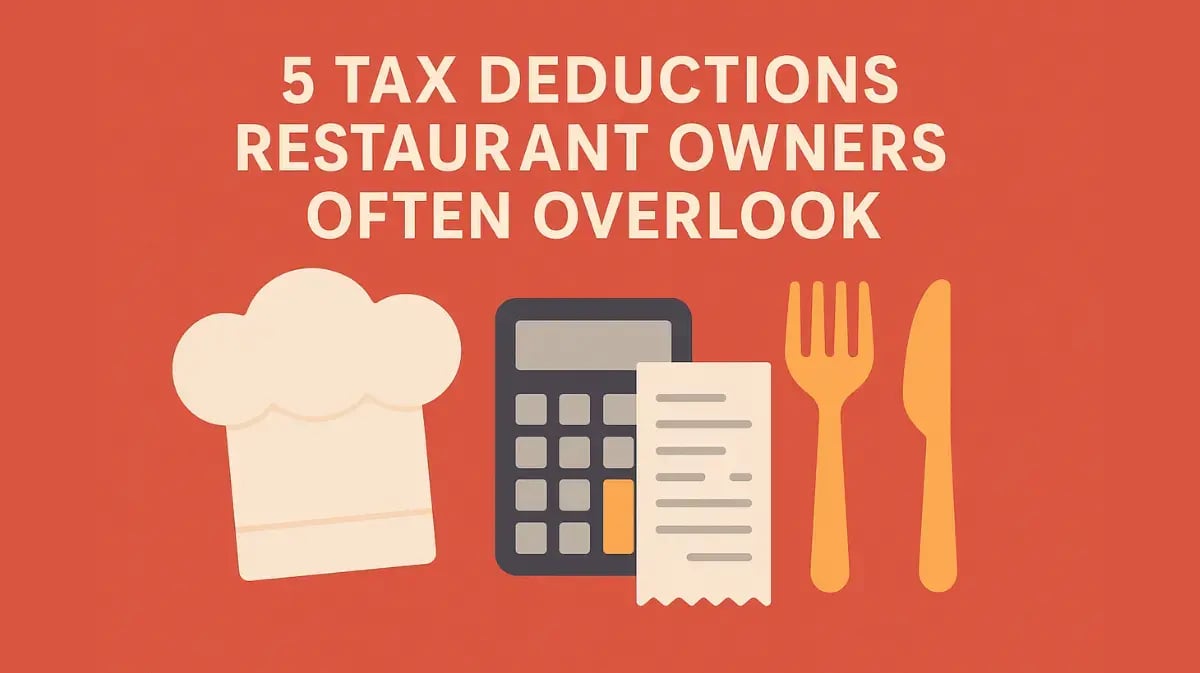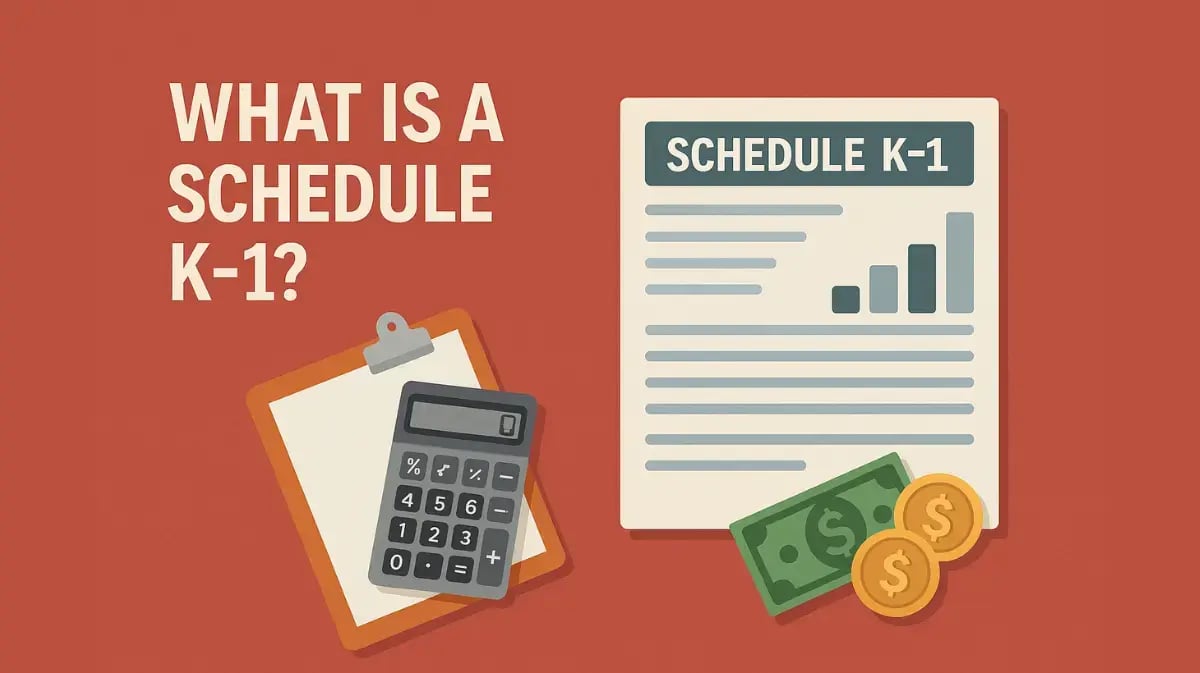What Are Payroll Taxes? A Simple Guide for Small Business Owners
October 17th, 2025
6 min read
By Jenae Taylor
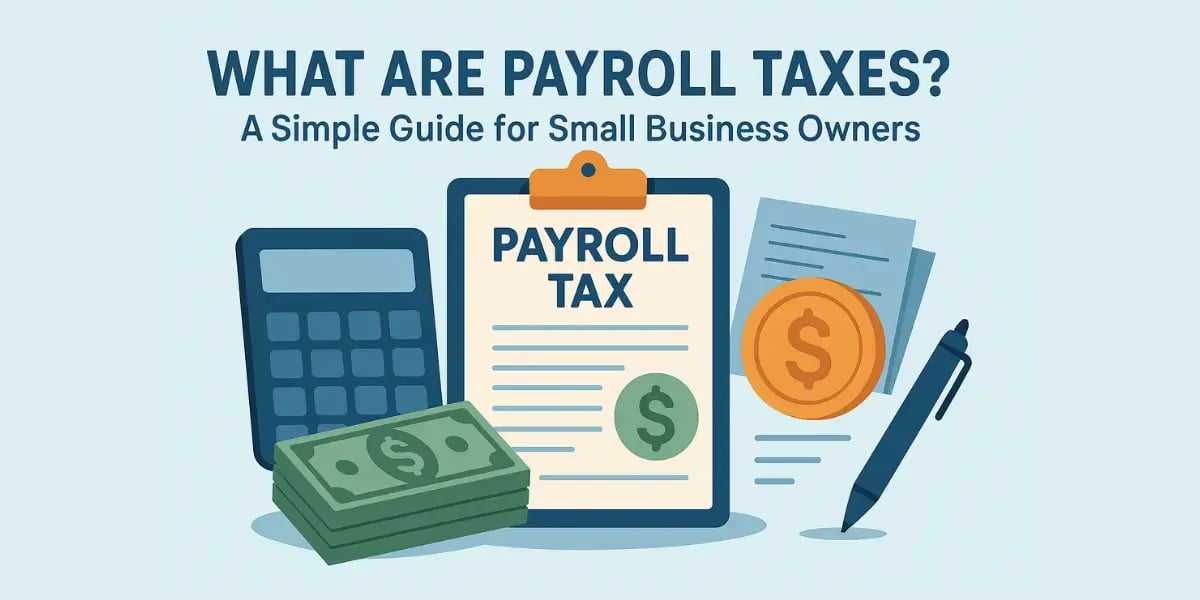
If payroll taxes feel like a maze, you’re not alone. Many small business owners find them confusing, stressful, or just plain frustrating. However, avoiding or misunderstanding payroll taxes can result in costly penalties and time-consuming issues.
The good news?
You don’t need a degree in tax law to stay compliant. You just need a basic understanding of how payroll taxes work, what they cover, and how to stay on top of them.
This guide breaks down the essentials in plain language, giving you exactly what you need to keep your business on track.
What Are Payroll Taxes?
Payroll taxes are taxes you withhold and pay based on your employees’ wages. When you pay employees, they withhold a portion of their wages for taxes. As the employer, you also pay your share of certain taxes. Together, these are known as payroll taxes.
Think of payroll taxes as the cost of having a team. Just like paying rent or buying supplies, payroll taxes are a regular part of running a business with employees.
These taxes are not optional. You must follow the law and handle them properly. They play a critical role in funding government programs and services. If you pay employees, you must manage payroll taxes accurately and on time.
Who Pays What?
When it comes to payroll taxes, both the employee and the employer have obligations. As a business owner, you're in charge of making sure all payroll taxes are calculated correctly, withheld properly, and paid on time. But you don’t pay everything yourself. You withhold some taxes from your employees’ paychecks, while you pay others directly. There are also taxes that both parties contribute to.
Here’s a simple breakdown of how you and your employees share that responsibility:
|
Tax Type |
Paid by Employer |
Withheld from Employee Paycheck |
|
Social Security |
Yes (6.2%) |
Yes (6.2%) |
|
Medicare |
Yes (1.45%) |
Yes (1.45%) |
|
Federal Income Tax |
No |
Yes (varies) |
|
State Income Tax |
No |
Yes (varies by state) |
|
Local Income Tax |
No |
Yes (varies by locality) |
|
Federal Unemployment (FUTA) |
Yes |
No |
|
State Unemployment (SUTA) |
Yes |
No |
Important: Tax withholding can vary significantly depending on your location. Some states, like Florida and Texas, don’t have state income tax. Others may not have local income tax at all. Certain states may also require additional withholdings, such as Paid Family Medical Leave (PFML), city-specific payroll taxes, work taxes, or even school district taxes. Make sure you understand your state and local rules to avoid surprises.
What Do Payroll Taxes Actually Cover?
Payroll taxes fund important federal and state programs that support your employees, your business, and the economy as a whole. These programs provide essential benefits, including retirement income, health care coverage, and temporary financial assistance, to support individuals when they lose their jobs.
- Social Security: Provides retirement and disability benefits to workers and their families.
- Medicare: Pays for health care for people over 65 and some younger people with disabilities.
- Federal income tax: Funds general government operations, defense, education, and more.
- State and local income taxes: Help pay for public schools, infrastructure, and local services.
- Federal Unemployment Tax (FUTA): Helps fund unemployment benefits for workers who lose their jobs.
- State Unemployment Tax (SUTA): Supports the unemployment insurance program in your state.
While not technically a tax, workers’ compensation insurance is often lumped into payroll-related expenses. This is a required coverage in most states and is part of your total cost of employing staff.
Why Payroll Taxes Matter (And Why the IRS Takes Them Seriously)
Payroll taxes aren’t just another expense. They’re considered trust fund taxes. That means when you withhold money from an employee’s paycheck, you’re holding it in trust until you send it to the IRS or your state agency. If you don’t send that money on time, the IRS treats it as missing, just like someone taking money from a bank account that doesn’t belong to them.
Here’s what happens when you don’t file or pay payroll taxes correctly:
- Penalties and interest can quickly accumulate, even for small amounts.
- You’ll face late filing fees if you don’t submit tax returns on time.
- The IRS or state may audit your business if they find mistakes or see unpaid accounts.
- In serious cases, they can file criminal charges for willful nonpayment.
Missing payroll taxes can also shut down your state unemployment account, which prevents you from filing reports and receiving important notices. That’s a red flag that can lead to back taxes and investigations going back years.
The bottom line: payroll taxes aren’t something to ignore or delay. It’s better to set things up correctly from the start and have a system that keeps you on track.
What Employers are Responsible For
As a business owner, you’re responsible for more than just paying your team. You’re also in charge of withholding, filing, and paying payroll taxes. Here’s a basic checklist of what you need to do:
Withhold the Right Amount
- Collect new hire forms such as the W-4 (federal) and any required state withholding forms.
- Make sure employee information and exemptions are correct in your payroll system.
Pay the Employer Portion
- Match Social Security and Medicare.
- Pay federal and state unemployment taxes.
File the Right Tax Returns
- Form 941: Quarterly report for Social Security, Medicare, and withheld federal income tax.
- Form 940: Annual FUTA return.
- W-2s and W-3: Sent to employees and the IRS at year-end.
- State and local filings depend on where you do business.
Make Timely Payments
- Send withheld and employer-paid taxes to the IRS and your state using systems like EFTPS (federal) and INTime (Indiana state portal).
- Payment schedules vary (monthly, semiweekly, quarterly) based on your payroll size.
Keep Good Records
- Save payroll reports, pay stubs, and filing confirmations.
- Monitor tax notices and respond quickly if something looks off.
Common Payroll Tax Mistakes
Even experienced business owners can slip up when it comes to payroll taxes. With so many moving parts, such as rates, forms, deadlines, and changing rules, it’s easy for small errors to snowball into bigger problems.
These are some of the most common and costly mistakes to watch for:
- Missing a tax deposit deadline: You must make payments by specific due dates. One missed deadline can snowball into penalties and interest.
- Misclassifying workers: Treating employees as independent contractors can cause major tax issues.
- Setting up payroll software incorrectly: Many off-the-shelf systems don’t automatically register your business for required tax accounts. You may need to do that manually.
- Forgetting about local taxes: If you hire someone in a different city or state, their local tax rules may apply.
- Failing to check pay stubs: Employees should check that you’re withholding the correct taxes from their paychecks. If not, they’ll owe when they file their personal income taxes.
- Ignoring tax notices: If a state or the IRS sends you a notice, don’t assume it’s a mistake. Follow up or ask your payroll provider for help.
Mistakes often happen when business owners try to manage payroll without knowing all the rules or assume the software is doing everything correctly.
How to Stay Compliant Without Losing Sleep: 4 Steps to Take This Month
Managing payroll taxes doesn’t have to be a constant worry, but it does require the right systems and habits. To stay compliant, meet every deadline, prevent costly mistakes, and handle each step of the process with care.
Here are a few ways to simplify the process and protect your business:
1. Choose the Right Payroll Solution
Not all payroll systems are created equal. Some simply calculate the taxes owed but leave you on the hook to file forms and make payments yourself. Others are full-service, taking care of everything from withholdings to filings and tax payments. That’s why it’s critical to know exactly what your system does—and more importantly, what it doesn’t.
If you’re not 100% confident in handling those responsibilities on your own, outsourcing to a trusted payroll provider can be a game-changer. A reliable provider will do more than just run payroll—they’ll:
- Set up your tax and payroll accounts correctly from the start
- Withhold and pay the right amounts, on time
- File all required payroll forms before deadlines
- Manage tax notices and keep your records in order
You’ll still need to track employee hours and gather new hire details, but the heavy lifting—calculations, compliance, and communication with tax agencies—can be handled by a knowledgeable team.
2. Register for All Required Tax Accounts
Register your business properly with the following agencies:
- The IRS (for your EIN)
- Your state’s department of revenue (for withholding tax)
- State unemployment agency
- Local tax offices, if applicable
Many business owners overlook this step when setting up payroll for the first time.
3. Create a Compliance Calendar
Mark filing deadlines, payment dates, and reporting obligations on your calendar. This keeps things visible and helps you stay ahead of any issues.
You Don’t Have to Handle Payroll Taxes Alone
You didn’t start your business to become a payroll tax expert. But making mistakes with payroll taxes can lead to costly setbacks that affect your team and your future. That’s why it’s crucial to get it right from the start and have support when things get complicated.
TMA Accounting helps small business owners simplify payroll and stay on top of payroll taxes. We offer clear, fixed-fee payroll services designed to keep you compliant, avoid surprises, and give you peace of mind. We’ll help you register your accounts, file your returns, and keep your tax payments on track—so you can focus on what you do best: running your business.
Ready to make payroll one less thing to worry about? Reach out to us today and discover how much easier it can be when you have the right support team by your side.
FAQs About Payroll Taxes
Do I need to pay payroll taxes if I’m the only employee?
Yes, if you’re on payroll as an S Corp officer or other employee of your business, payroll taxes still apply.
How often do I need to send payroll tax payments?
It depends on your total payroll. You might deposit taxes monthly or semiweekly. The IRS will assign your deposit schedule based on your filings.
What happens if I miss a payment?
The IRS or state will charge you penalties and interest. These costs grow quickly. You can get back on track, but you’ll still owe back taxes.
Can payroll taxes be automated?
Yes, but it depends on your software or payroll provider. Automation helps reduce errors, but you should still review your filings regularly.
Blog Disclaimer: Nothing in this post constitutes legal, tax, or financial advice and is intended for informational and educational purposes only. This informational and educational material is not intended, and must not be taken, as legal, tax, or financial advice on any particular set of facts or circumstances or as recommendations that are suitable for any specific person. You need to contact a lawyer, accountant, or financial adviser licensed in your jurisdiction for advice on your specific questions, issues, and concerns. View our full Terms of Use here.
Topics:











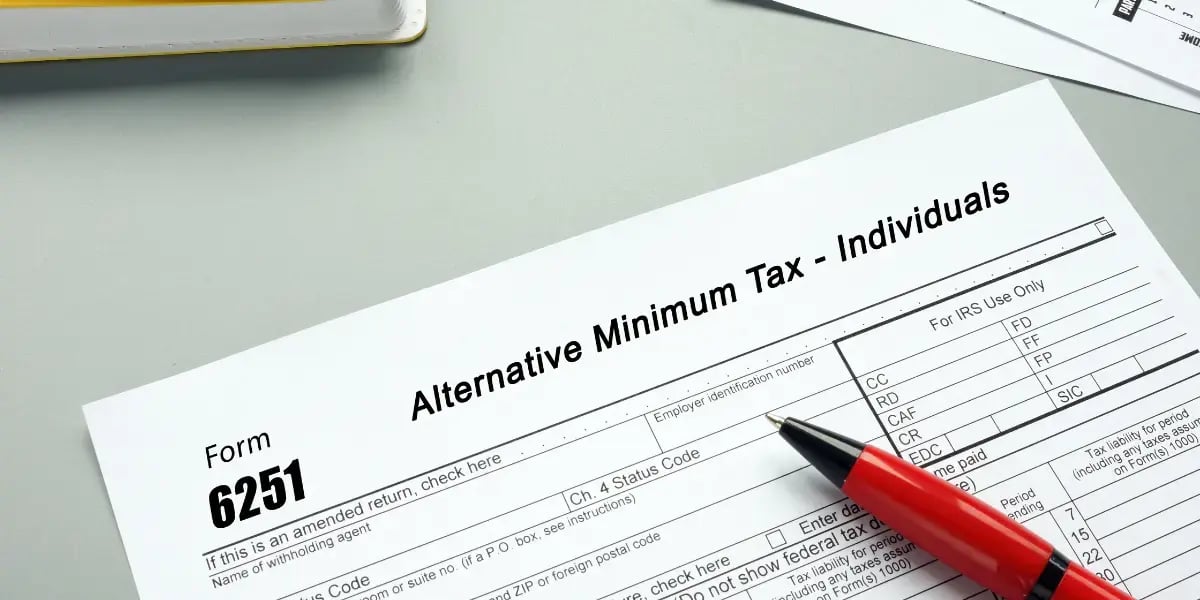




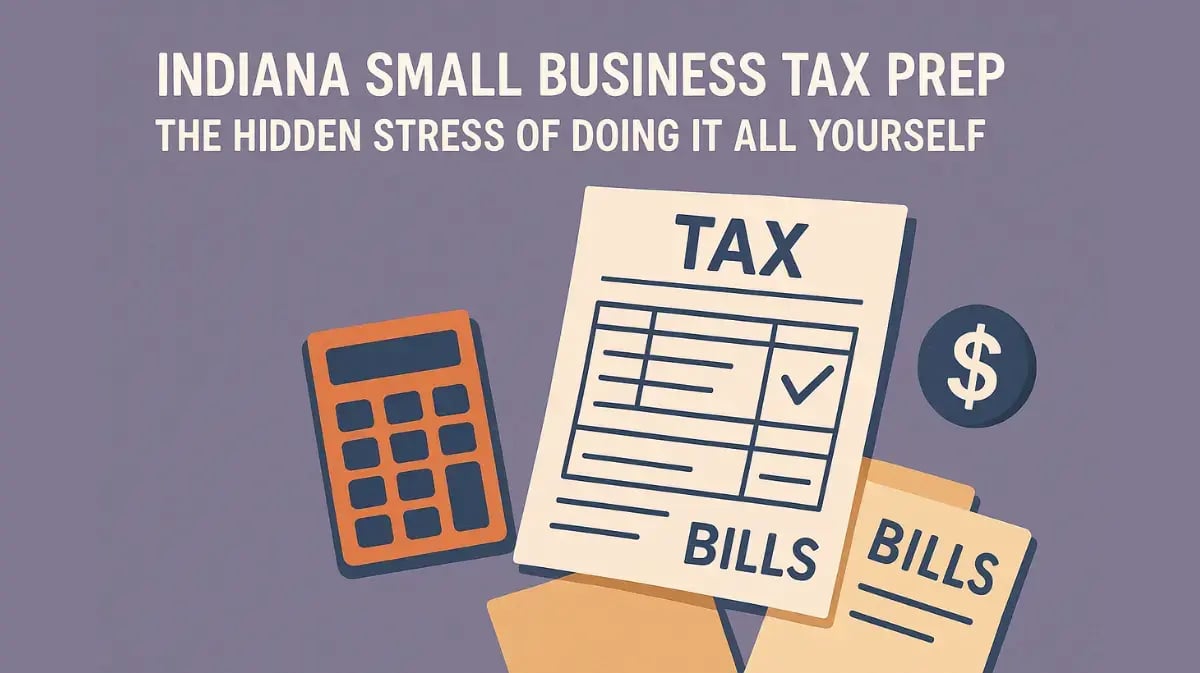


%20Early.webp?width=1200&height=673&name=5%20Consequences%20of%20Withdrawing%20from%20a%20401(k)%20Early.webp)
